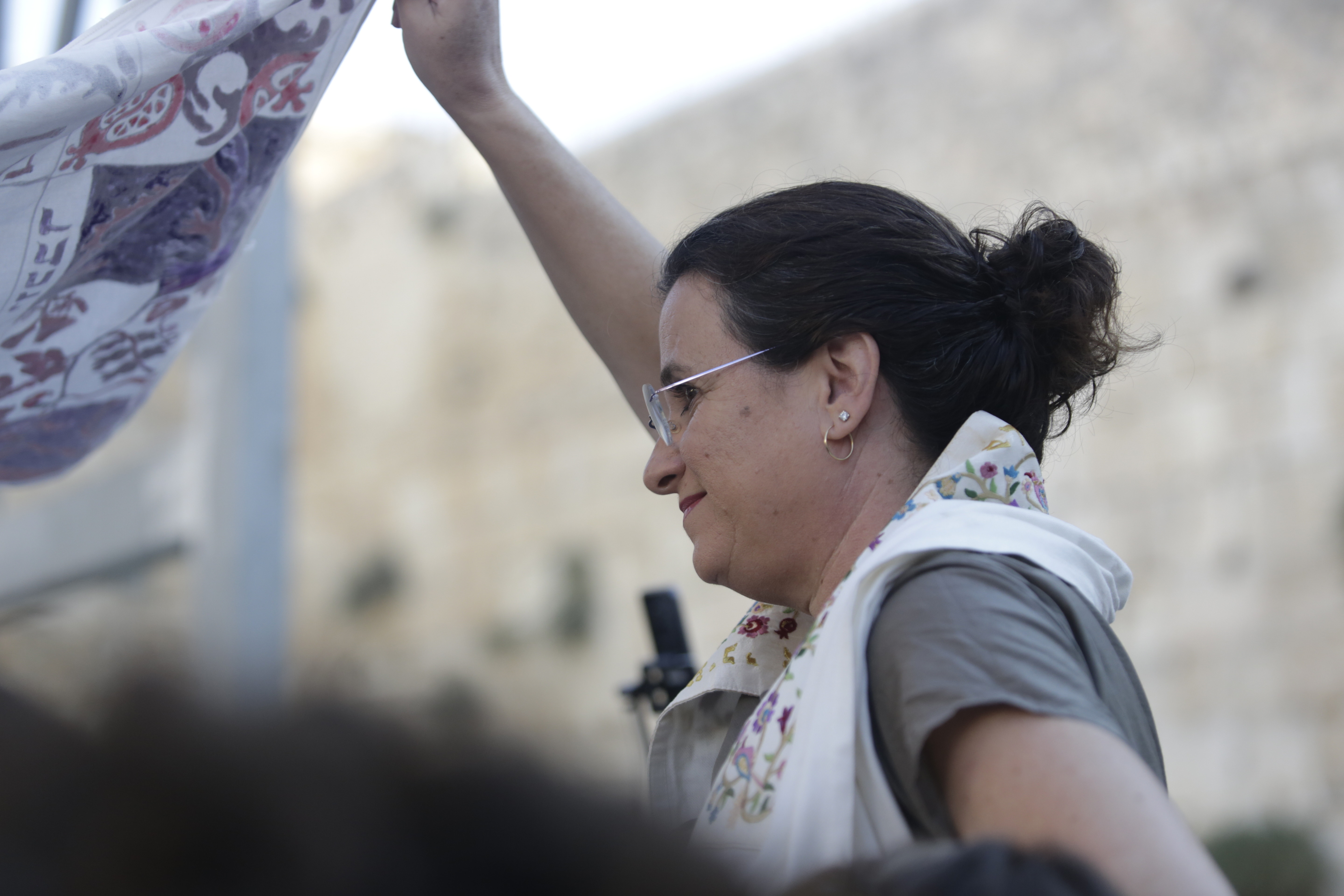Is the southern end of the Western Wall just as ‘holy’ as the northern end where we pray today?
Is the new section that has been offered to us, the area above Robinsons’s Arch and the Herodian Road, as holy as that area just north of it?
For three years we toiled in negotiations, in anticipation of the day when the government would approve the proposal for a new section where Jews from all denominations can pray. The Kotel has become a holy place because it is a place of prayer. It is prayer which sanctifies the Kotel. The new prayer section offered to us is just to the right, just a little south of the Kotel we are all familiar with but it will be holy. It will be holy because of all of the future prayers that will be said there.
It is actually the northern Kotel, the one we all know and pray in today, which excludes women who wish to pray there. In rejecting women who wish to wear tallitot and tefillin. the northern Kotel is flawed in its holiness. The Kotel today ostracizes the honest and authentic prayers of women who wish pray together. A place that is not equal is not holy to me.
I do not want to pray in a place that excludes women who wish to pray together.
Just as I cannot pray in a synagogue where women sit in silence, watching from behind the partition as the prayer goes on without them, it is difficult for me to pray in the northern section of the Western Wall.
I do not want to whisper my prayers, I do not want to silence my voice. I want to come with my friends and pray out loud, sing and dance in prayer. Each verse of prayer inside me, just bursting to get out.
“And when you see this, your heart shall rejoice, and your bones shall flourish like an herb” (Isaiah 66), a verse from Isaiah, engraved on one of the stones of the Kotel, in the area above Robinsons’s Arch and the Herodian Road.
The new prayer, a verse written in future tense describing redemption “when you see this, your heart shall rejoice.” When we see the worshippers who come to the new section in the area above Robinsons’s Arch, a remnant of the path leading to the Temple, and the Herodian Road, one of the most ancient roads in the world, we will rejoice.
Avigail Antman is a poet, literature teacher, and educator at the Masorti High School in Jerusalem. A member of Kolech, Religious Women’s Forum, she publishes a weekly poem about the weekly parsha. She has been a member of Shira Hadasha since its 2002 inception and grew up in the Jewish quarter of Jerusalem’s Old City, praying every Shabbat at the Kotel.


